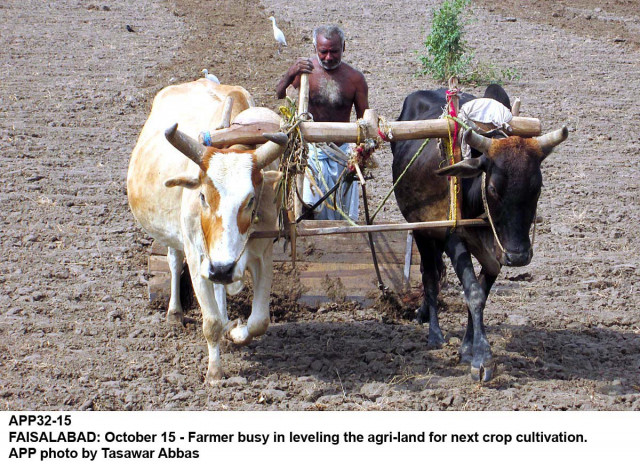Meeting highlights importance of farming
Urges more effective use of natural resources to eradicate poverty.

A farmer tilling the land ahead of next cultivation season. PHOTO: APP
Addressing a meeting at the University of Agriculture Faisalabad (UAF) Dr Kalkat stressed the rational need of utilising abundant natural resources like land, water and air. He said it is important to minimise the cost of production, terming it a key factor to penetrate international markets.
He said subsidised water and energy given to Indian farmers have also been misused in the community, and that providing latest agricultural machineries to farmers on rent would increase productivity.
UAF Vice Chancellor Dr Iqrar Ahmad Khan said that agriculture was the way to eradicate poverty from the country. He also said both countries were facing similar challenges including poverty, low productivity and climate changes.
He added that improper sowing, misuse of resources and imbalanced usage of inputs is the hurdles to obtain the maximum potential. “We have to take tangible steps to provide a secured future for the coming generation,” he said. “All major sectors including textile, food, milk, poultry in Pakistan are directly or indirectly linked to the agricultural sector.”
Ayub Agricultural Research Institute Director General Dr Abid Mahmood said 50% of the farming community sows wheat later than the recommended date, delaying and ultimately leaving the land unutilised.
Published in The Express Tribune, April 28th, 2015.
Like Business on Facebook, follow @TribuneBiz on Twitter to stay informed and join in the conversation.


















COMMENTS
Comments are moderated and generally will be posted if they are on-topic and not abusive.
For more information, please see our Comments FAQ